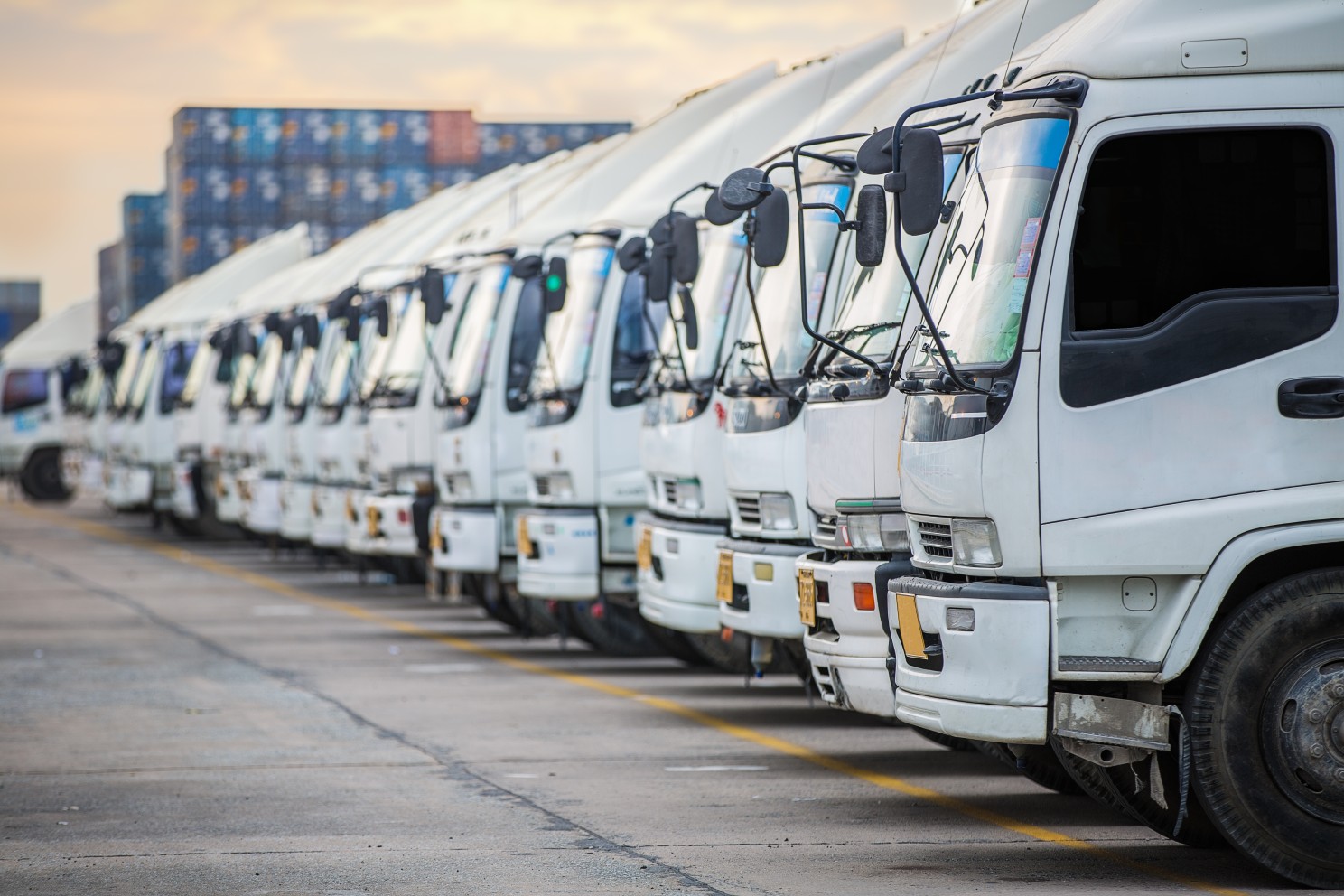
Susie Jones
Řidiči nákladních vozidel zpochybňují pojem "nedostatek řidičů"
Vytvořeno: 15.08.2024
•
Aktualizováno: 18.12.2024
Dne 11. dubna 2024 zahájilo ministerstvo dopravy konzultaci o opatřeních na zmírnění nedostatku řidičů. Hledají se návrhy, které by umožnily, aby osoba před udělením prozatímního řidičského oprávnění pro těžká nákladní vozidla mohla absolvovat teoretické zkoušky a zkoušky pro manévry mimo pozemní komunikace.
Po událostech Covid-19 a brexitu došlo v odvětví k poklesu počtu řidičů nákladních vozidel. Pandemie zpozdila 30 000 testů pro nové řidiče a brexit tvrdě zasáhl společnosti provozující vozové parky - mnoho evropských řidičů kamionů opustilo Spojené království.
Zpráva SNAP z roku 2023 naznačuje, že v příštích 10 až 15 letech by toto odvětví mohlo dosáhnout "bodu zvratu". Vzhledem k rychlým změnám v odvětví jsou online objednávky jedním z nejrychleji rostoucích požadavků - v kombinaci se stárnoucí pracovní silou potřeby odvětví přerostou nedostatek kvalifikovaných řidičů.
Co si myslí řidiči kamionů?
Na sociálních sítích vyzval SNAP řidiče, aby vyjádřili svůj názor na návrh stanovený ministerstvem dopravy. Mnoho řidičů se k programu nevyjádřilo, 72,5 % z nich však zpochybnilo termín "nedostatek řidičů" a označilo ho za strašení.
Namísto toho uvedli, že zkušení řidiči opouštějí odvětví a že to odrazuje nové uchazeče:
Mzdy
Ze 72,5 % respondentů jich 28 % uvedlo, že je odrazuje nízká mzda. Řidiči na stránkách SNAP na sociálních sítích naznačovali, že by si mohli vydělat více v různých profesích:
"Mám řidičský průkaz na nákladní vozidla, ale nemám chuť ho používat. V současné době si vydělám více na hodinu jako instruktor autoškoly. Vůbec nejde o nedostatek řidičů. "
"Plaťte řidičům více peněz a poskytněte jim lepší zázemí. "
O platech řidičů nákladních automobilů ve Velké Británii panují mylné představy - panuje názor, že řidiči nákladních automobilů vydělávají více než průměrný pracovník. Podle National Careers činí průměrný plat řidiče nákladního vozidla ve Velké Británii 22 000 až 40 000 liber - přičemž zkušení řidiči vydělávají nejvyšší částky.

Zařízení
Mnozí z nich se zaměřili také na zařízení - 20 % z nich obviňovalo špatné standardy, které odhánějí kvalifikované řidiče. Úroveň vybavení zastávek pro kamiony ve Velké Británii byla ze strany pracovníků v oboru velmi kritizována a mnozí z nich uvedli, že za ty peníze nestojí.
Ministerstvo dopravy přijalo významná opatření v podobě grantového programu v hodnotě 6 milionů liber Program podpory parkování nákladních vozidel a péče o řidiče - podpořený dalšími 10,5 milionu liber od průmyslu. V rámci tohoto programu se bude investovat do 38 zastávek pro nákladní automobily v Anglii, aby se modernizovalo zázemí pro řidiče, včetně nových sprch a restaurací, a také do lepšího zabezpečení.
Kromě modernizace zázemí se počítá s vytvořením přibližně 430 nových parkovacích míst pro nákladní automobily, což povede ke snížení počtu odstavných stání a zaplnění parkovišť v podvečer.
Nedostatek práce
Stejně tak 20 % řidičů vysvětlilo, že mají řidičský průkaz, ale nemohou najít práci. Podle Národního statistického úřadu (ONS) je ve Spojeném království více než 183 000 pracovních míst pro řidiče nákladních vozidel. Navzdory tomu se v každém regionu nabízejí jiné pracovní příležitosti, což vede k nerovnoměrné poptávce po celém Spojeném království. Více řidičů se podělilo o své zkušenosti s tím, jak se snaží získat práci:
"Už sedm měsíců mám první třídu a nemůžu sehnat práci. Rád bych věděl, kde je nedostatek. "
"Jaký nedostatek? Není moc práce k mání. "
Osvědčení o odborné způsobilosti řidiče
10 % respondentů, kteří nesouhlasili ani nesouhlasili s pojmem "nedostatek řidičů", uvedlo, že Osvědčení profesní způsobilosti řidiče (CPC) sehrálo rozhodující roli při snižování počtu řidičů nákladních vozidel.
Systém CPC byl zaveden v roce 2009 a jeho cílem je zvýšit bezpečnost silničního provozu, profesionalitu a povědomí o životním prostředí - zajišťuje také, aby řidiči splňovali všechny zdravotní, bezpečnostní a právní požadavky. Výsledky konzultace týkající se revize politiky CPC ukázaly, že 47 % řidičů nákladních vozidel uvedlo, že je neúčinná nebo velmi neúčinná. Ze sociálních médií SNAP jeden řidič uvedl následující komentář:
"Zbavte se CPC a já si vezmu směny. Nebudu platit za to, že budu dělat 35 hodin a učit se dělat to, co jsem předtím dělal léta každý den. "
Vláda nastínila řadu změn v CPC, které mají zvýšit flexibilitu při obnovování a získávání kvalifikace. Kromě změn v délce kurzu vláda spolu s Agenturou pro standardy řidičů a vozidel (Driver and Vehicle Standards Agency) připraví více základního obsahu kurzu.
Vnější faktory, jako je brexit a COVID-19, v kombinaci s problémy souvisejícími s odvětvím významně ovlivnily míru zaměstnanosti v odvětví nákladní dopravy. Ve stále se vyvíjejícím prostředí musí odvětví pokračovat ve změnách, pokud je to nutné, aby přilákalo a udrželo si více řidičů.
O společnosti SNAP
SNAP je digitální tržiště - spojuje cesty vozového parku ze skladu do místa určení v celé Evropě prostřednictvím technologie, bezpečnosti a rozsáhlé evropské sítě.
Službu využívá každých 13 sekund jeden z více než 190 000 řidičů kamionů, kteří používají platební systém SNAP. Transakce probíhají v síti více než 600 servisních partnerů pro nákladní vozidla v celé Evropě. Zaregistrujte se zdarma


